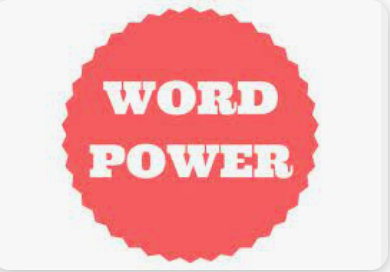
Operation Inspiration
As a wordsmith, I often take note of axioms and idioms, phrases and sayings, and I reflect on their meanings. One I was thinking about this week is, “The pen is mightier than the sword.” In this iteration, it was made famous by Edward Bulwer-Lytton, infamously known as the father of the phrase, “It was a dark and stormy night,” but there are numerous previous similar sources.
As Bulwer-Lytton uses it, it means that when you want to convince someone of something, using words can be much more successful than using force or threatening violence. Indeed, as Viscount John Morley said, “You have not converted a man because you have silenced him.” By speaking to people, he suggests, you have much more chance of effecting change.
Earlier sources take a slightly different twist on it, that being that words can wreak more havoc than a blade. While a physical wound will heal with time, emotional scars may linger forever. I’m reminded of a rhyme I heard years ago, “Sticks and stones may break my bones, but words will make me go cry in a corner for hours.”
Yes, words can be more powerful than the sword in their ability to create widespread devastation. Take, for example, what happened when the Jews were leaving Egypt. After a year of warnings and plagues, Pharaoh had had enough. He called Moshe and Aharon and told them to take the Jews and leave! They were no longer welcome in his land.
However, suddenly the Torah tells us he had a change of heart. Why? “It was told to the king of Egypt that the Jews escaped.” By phrasing it as an escape, though it was clearly not, suddenly, it made Pharaoh and his people think the Jews were putting something over on them. They forgot that they were the ones to send the Jews out and instead listened to the narrative they were given. This led to the mobilization of their armies and would have potentially led to the eradication of the Jews, had not Hashem drowned the Egyptians instead in the Reed Sea.
Remember what happened with Lavan and Yaakov? Lavan’s children complained about how Yaakov had enriched himself from Lavan’s wealth. Though it was untrue, Lavan began to view Yaakov differently, negatively, and ultimately wanted to destroy him.
Often, stories come out about people and based on how they are presented, paint the person in a terrible light. The words used effectively murder the person, but when the truth comes out, and the person turns out to be innocent, those same words are not able to be taken back. The damage is done and cannot be undone.
Words can be used to incite mobs and historically that has been the case. Powerful speakers have achieved unspeakable violence without lifting a finger against their victims. Instead, they convince others to do their dirty work for them. But, forewarned is forearmed.
If we are not fooled by these stories and we recognize the need to understand the truth of each circumstance for ourselves, we will avoid causing harm. Indeed, the laws of Lashon Hara, if kept properly, lead to more justice for people and less suffering of innocent people. Those who normally get angry about things would be able to maintain a level-headed equilibrium and have better lives too.
But after all of this, I realized another way that the pen is mightier than the sword. In fact, this approach is even more astounding.
The sword can slash and gash and kill. It can cause death. But do you know what words can do? They can give life!!!
Yes! The proper words can change someone’s trajectory in life and guide them to good and success. A motivational speaker told the story of how when he was in school, the older students were paired with some younger ones to act as mentors and big brothers. He was excited about it but when he looked at the list, he saw his name wasn’t on it. His heart sank and he went home as if he were sick. He couldn’t bear to be in the school where they didn’t find him worthy of imparting any guidance to a younger student.
Later that day, his mother got a phone call from the school. “What did I do now?!” he lamented. “I wasn’t even in school!” But he wasn’t in trouble. The teacher asked to speak to him, and said, “I saw that your name wasn’t on the list. I told the person who made it there must have been a mistake. I know you have trouble sitting still in class, but you’re a good boy with lots to offer.”
Today, this man has inspired tens of thousands of people, and speaks of how these words changed his life. Many times, he recalled that conversation and felt worthy and valuable. These words gave him life, and helped him give to others as well.
Is it not true how much more powerful these loving words were than the cutting remarks the teacher might have made about his behavior in school? Yes, words have so much power, and we must be wise in how we wield them.
© 2023 – All Rights Reserved
Did you enjoy this column? Feedback is welcome and appreciated. E-mail info@JewishSpeechWriter.com to share your thoughts. You never know when you may be the lamp that enlightens someone else.